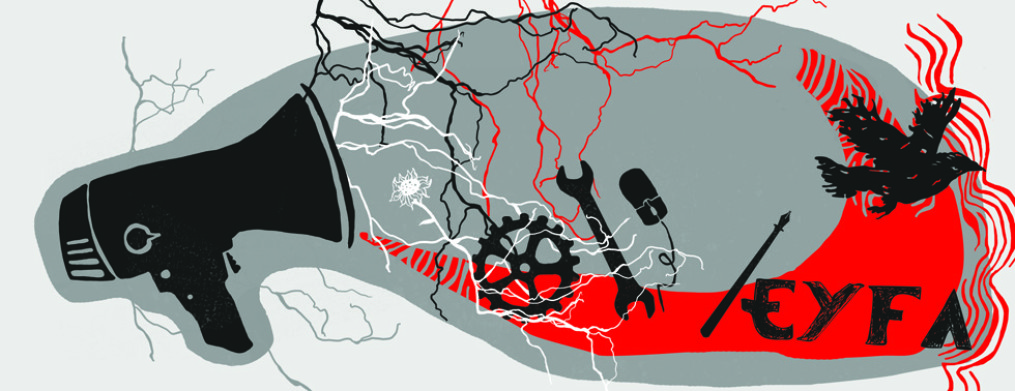These are the core priorities that guide our mission and activities in empowering youth across diverse backgrounds. We emphasize Non-Formal Education (NFE) as a crucial tool for political education and community organizing, ensuring that young individuals engage actively in their learning and decision-making processes. Additionally, we advocate for social and environmental justice, recognizing the intertwined struggles faced by marginalized communities and prioritizing their perspectives in addressing systemic injustices. Lastly, we are committed to fostering inclusion, accessibility, and empowerment through an intersectional lens, ensuring that every participant can navigate and contribute to our collective work regardless of their identity, ability, or socioeconomic status. Together, these priorities reflect EYFA’s dedication to nurturing a more equitable, inclusive, and engaged youth grassroots organising.
a) Non-formal Education
At EYFA, we prioritise Non-Formal Education (NFE) in Youth Work as an approach to political education and community organising among the youth, an approach emphasised throughout our activities, publications and communication. Throughout the years of organising these youth initiatives, we have gained significant experience in NFE that informs the planning of our activities. The pillars of NFE that EYFA has always followed and will continue to follow are active participation and cooperative learning processes, processes that centre non-hierarchical experiential and interactive learning. In order to foster active participation and encourage young participants from marginalized backgrounds to take ownership over the learning process, EYFA’s activities are always accompanied by the continuous facilitation of sessions for self-reflection to insure the creation of safer spaces where the participants are empowered to give as well as receive feedback in a constructive manner throughout the gathering.
EYFA also encourages horizontal decision-making as well as dissemination of information and knowledge. As a result of their experience with EYFA, groups and individuals participating in our activities should feel empowered to organize and facilitate their own workshops, mobilize consensus-based organizational tools, and share their new acquired skills with their peers, encouraging and supporting them to do the same.
It is particularly important for youth groups positioning at the intersection of various marginalized identities (Queerness, racialization, disability, mobility, etc.) to take active roles in teaching, facilitating and mentoring, in order for our societies to become increasingly inclusive and peaceful.
b) Youth access to rights through Social and Environmental Justice organizing
In a world where social and environmental injustices are increasingly prevalent, it is crucial to focus on young people’s access to rights as a central theme in our efforts. At EYFA, we recognize that communities are diverse, shaped by various backgrounds, experiences, and needs related to class, gender, ability, sexual orientation, and race. To advance social justice, we prioritize racial justice as a vital component of our approach, emphasizing the need to confront systemic and internalized racism within our movements. Furthermore, as environmental injustices disproportionately impact marginalized communities, their access to essential resources and basic needs becomes increasingly challenging in the face of worsening climate and environmental crises.
We therefore prioritize the perspectives of marginalized communities in engaging with environmental justice, as they possess a unique perspective on the interconnectedness of various socio-ecological struggles the world is facing today, highlighting the wide gaps in social inequalities that influence the global fight against climate change and environmental destruction. By fostering an intersectional perspective, we aim to highlight the connections between social and environmental issues, advocating for the rights of those most affected. Through our various projects, we strive to illuminate the links between economic exploitation and the denial of fundamental rights. Ultimately, we empower young people to take action, aiming for a future where all individuals can enjoy safety and abundance.
c) Inclusion, Accessibility and Empowerment
It is important to highlight and acknowledge how different gender identities navigate the world and how systems of oppression are meant to enforce gendered,racialized or ableist biases. It is just as important to centre the knowledge of these intersectional experiences in order to rethink our global structures through systems that benefit the most to the least privileged positionalities among us.
In this respect, EYFA embraces an intersectional feminist approach to acknowledge and address the complexities of gender and racial dynamics throughout all our projects and activities, where we see gender as a transversal category. While several EYFA projects focus on empowering young Women, Lesbian, Trans*, Intersex, Non-Binary & Gender Non-Confirming activists and groups in particular, we strongly believe that when it comes to the intersection of migration and race, it is particularly important to include the perspectives of masculine (be those trans*, cis or non-binary) identities as well. Therefore, Queer migrant youth of all genders are centred in our collaborations, as a way to create inclusive, aware, strong and respectful and free societies.
In addition to these positionalities, we also acknowledge the impacts of various other layers of discrimination, such as legal status, access to basic needs, language barriers, access to formal education, etc. We are therefore always striving to find innovative ways to address these structural inequalities within our structure and our activities. Examples of such efforts include centring methods of “Non-Formal Education in Youth Work” as one of our priorities, providing interpretation and translation in as many languages as possible, making our events as accessible as we can (financially, physically, sensorily) or collaborating with facilitators, moderators and trainers which backgrounds and experiences align with the topics they address. Bringing special attention to these processes represents a crucial aspect in EYFA’s work in order to facilitate effective and fruitful intersectional, cross-regional and intercultural learning exchange.
